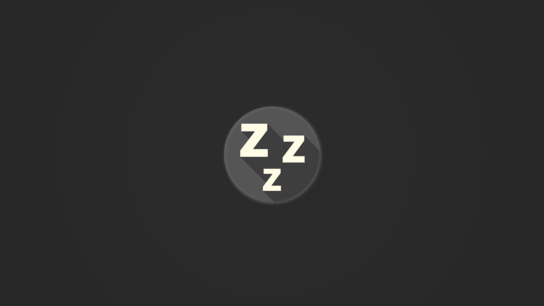There are a ton of Android apps that over-complicate sleep tracking. Some apps want to listen to your sleep all night, others want you to take your phone with you into bed as you sleep. Many of these apps come with a 30–50 USD yearly subscription cost.
I found a simple Android app on the other side of the spectrum. The Sleep Debt Tracker app assumes you’re asleep between the times when you last checked your phone before going to bed and when you wake up to check your phone again.
The app only tracks when you go to bed, wake up, and how many hours you sleep you get per day. You don’t need to open or interact with the app at all for it to do its thing. You don’t need to make any changes to your bedtime routines to make use of the app. It also doesn’t try to apply pseudo-science to analyze your “sleep quality” or anything like that.
The app can optionally be linked to a Google Fit account if you want to share data with Google. You can see trends and graphs in both apps. However, the Google Fit app is better at visualizing the data. Your data is kept on-device by default. You can also export your sleep data to a CSV file to do your analysis. The app doesn’t require any privacy invasive app-permissions.
You can configure the app to send bedtime reminders if you need a nudge to remember to go to bed at the right time. You set the number of hours of sleep you need each night in the app, and it will remind you to go to bed at that many hours before your next configured alarm. The app works with most alarm clock apps that integrate with the Android operating system.
I’ve had some issues with the bedtime reminders, though. The app some nights sends them an hour after my bedtime instead of an hour before. I’ve informed the app developer about the problem.
I’ve deliberately avoided discussing the apps’ “sleep debt” tracking feature. This is a gimmicky feature built around the notion of “sleep banking”; the idea that you can manage sleep like a sort of currency. You deposit extra sleep-time by sleeping more on some days and withdraw it by skipping on sleep on other days.
This is possibly an unhealthy way to manage your sleep. You risk negotiating with yourself over your bedtime each day instead of trying to maintain a healthy consistent sleep schedule. This gimmick feature of the app could be promoting bad sleep habits.
I think the core functionality of this app is pretty great. Bedtime reminders can be useful for anyone who tends to stay up a little too late in the evenings. Except for the sleep debt gimmick, the app has just the right amount of functionality. It also works way better for couples than any other sleep tracking apps and devices I’ve used.
The Sleep Debt Tracker app is available for free with ads on the Google Play Store. You can remove ads and get some extra features for 2 USD.
